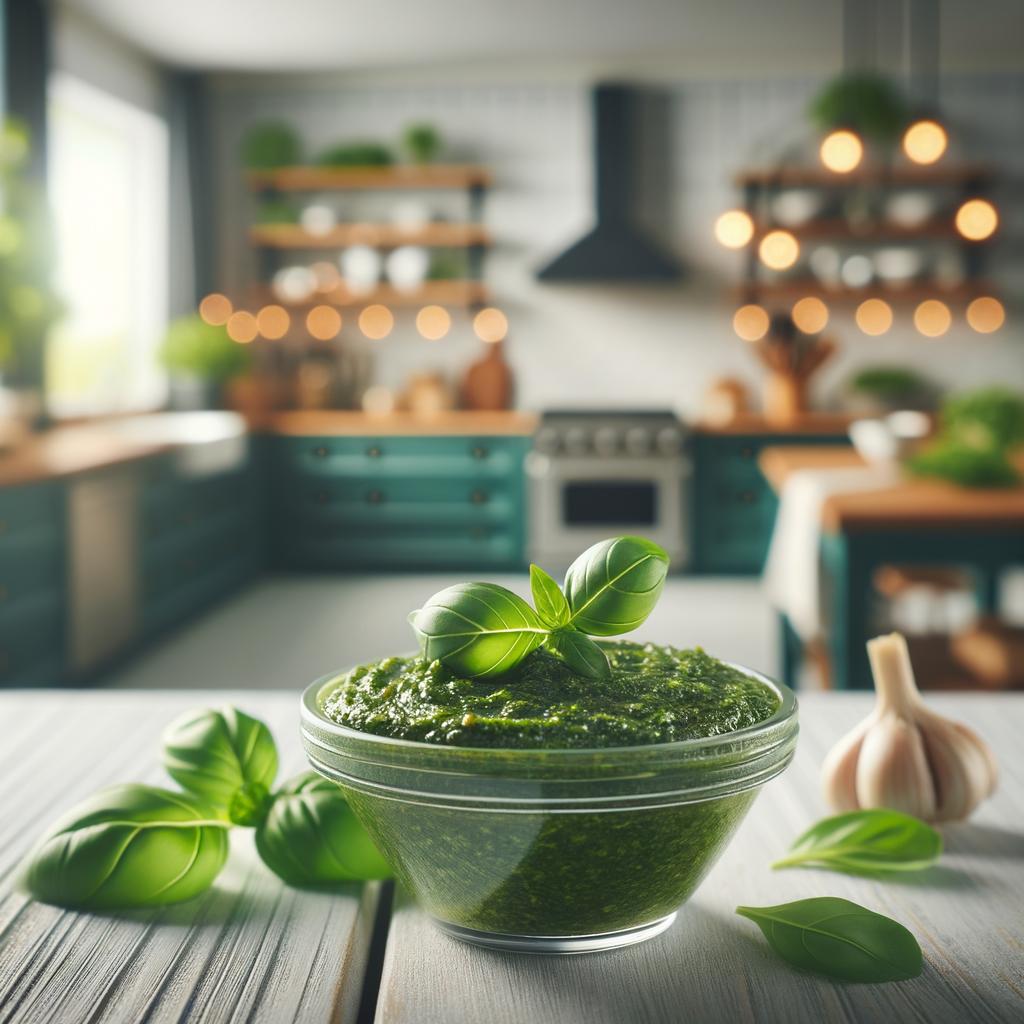Pesto

Description
Pesto, a word derived from the Italian verb "pestare," meaning to crush or pound, is a vibrant green sauce that is as rich in flavor as it is in history. It is a symphony of simple yet powerful ingredients: fresh basil leaves, pine nuts, garlic, parmesan cheese, and olive oil. The basil leaves lend a fragrant, slightly sweet and peppery flavor, while the pine nuts provide a soft, buttery texture. Garlic adds a pungent kick, and the parmesan cheese imparts a salty, umami richness. Lastly, the olive oil ties all these flavors together, creating a glossy, emulsified sauce. One of its unique characteristics is the method of preparation - traditionally ground in a mortar and pestle, hence the name.
Primary Uses
Pesto is a versatile sauce that is commonly used in a variety of dishes across different cuisines. It is most famously paired with pasta in the traditional Italian dish "Pesto alla Genovese." However, its uses extend far beyond pasta. It can be spread on sandwiches, mixed into salads, used as a marinade for meats, and even as a pizza topping. Outside of the culinary world, pesto has a cultural significance in Italy, particularly in the Liguria region, where it is celebrated annually during the "Pesto Championship."
History
The origins of pesto can be traced back to the Roman age, where a similar paste called "Moretum" was prepared by crushing garlic, salt, cheese, herbs, olive oil, and vinegar. However, the modern version of Pesto, as we know it, originated in Genoa, Italy, in the mid-19th century. The introduction of basil in the recipe was a defining moment in the evolution of pesto. Over time, pesto has traveled and evolved, with different regions and cultures adding their own twist to the classic recipe. An intriguing myth is that the best pesto can only be made using basil from Pra' (a small borough of Genova), which gets its unique flavor from the local microclimate.
Nutritional Information
Pesto is not just a flavor powerhouse but also a nutritional one. The fresh basil is a good source of Vitamin K, Vitamin A, and antioxidants. Pine nuts provide healthy fats and protein. Olive oil is known for its heart-healthy monounsaturated fats, and garlic has been linked to a range of health benefits, from boosting the immune system to cardiovascular health. However, due to the cheese and oil, pesto can be high in calories and fat, so it should be used in moderation. Compared to other sauces like Alfredo or Bechamel, pesto offers a healthier, fresher option with a robust flavor profile.

